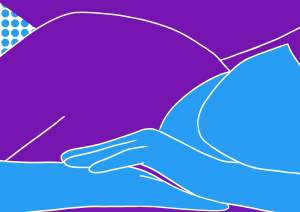Objectives
By the end of Family Medicine Clerkship, students will be able to:
1. Conduct a patient interview so as to:
a. Define what the patient means by “fatigue” and distinguish from other concerns eg. mood concerns, muscle weakness, decreased exercise tolerance +/- SOB
b. Identify clinical symptoms/red flags that suggest a secondary etiology, e.g. depression, anemia, hypothyroidism, malignancy, sleep apnea, cardiac disease
c. Identify context red flags that may suggest psychosocial concerns and impact differential diagnosis and/or management, eg. homelessness, isolation, single parent, addiction, recent losses, sleep quality/shift work
2. Conduct a relevant physical exam to refine DDx.
3. Include “watchful waiting” when appropriate as a diagnostic and/or management tool.
4. Propose and act on initial investigations based upon DDx and avoid over-investigation/”shot-gun” approach.
Clinical Cards
Microcases
https://cards.ucalgary.ca/deck/359
References
Recommended Resources Addressing the Objectives
Fatigue: an overview (7 pages)
Objectives covered: all
http://www.ncbi.nlm.nih.gov/pubmed/19035066
Rosenthal TC, Majeroni BA, Pretorius R, Malik K. Fatigue: an overview. Am Fam Physician 2008 Nov 15;78(10):1173-1179.
PMID:19035066
Adult Insomnia: Assesment to Diagnosis (11 pages)
Objectives covered: 1a-c, 3, 4
http://www.topalbertadoctors.org/download/440/insomnia_assessment_guideline.pdf
Alberta Medical Association. Adult Insomnia: Assesment to Diagnosis – Toward Optimized Practice (TOP) Program Guidelines. 2010; Available at: http://www.topalbertadoctors.org/download/440/insomnia_assessment_guideline.pdf. Accessed June/3, 2014.
(No PMID)
Foundational Knowledge
Neural mechanisms underlying chronic fatigue (12 pages)
http://www.ncbi.nlm.nih.gov/pubmed/24114898
Tanaka M, Ishii A, Watanabe Y. Neural mechanisms underlying chronic fatigue. Rev Neurosci 2013;24(6):617-628.
PMID:24114898
Additional Resources
Top 10 causes of fatigue in family medicine, plus clinical pearls (1 page)
Objectives covered: 1a-c
http://www.ncbi.nlm.nih.gov/pubmed/17872753
Ponka D, Kirlew M. Top 10 differential diagnoses in family medicine: Fatigue. Can Fam Physician 2007 May;53(5):892.
PMID:17872753
Comprehensive DDx and Approach to Fatigue in Elderly (6 pages)
Objectives covered: 1a-c, 4
http://www.ncbi.nlm.nih.gov/pubmed/22062449
Morelli V. Toward a comprehensive differential diagnosis and clinical approach to fatigue in the elderly. Clin Geriatr Med 2011 Nov;27(4):687-692.
PMID:22062449
Recent, Prolonged, and Chronic Fatigue in the elderly – diagnoses and treatments (14 pages)
Objectives covered: 1a, 1c, 3, 4
http://www.ncbi.nlm.nih.gov/pubmed/22062448
Morelli V. Fatigue and chronic fatigue in the elderly: definitions, diagnoses, and treatments. Clin Geriatr Med 2011 Nov;27(4):673-686.
PMID:22062448

